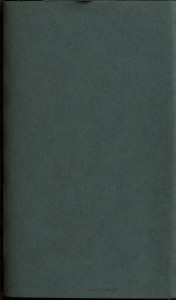Opera Posthuma
Read moreWorks
Nagelate schriften
Read moreTractatus Theologico-Politicus
Read moreTractatus Theologico-Politicus
Read moreB. de Spinoza, Renati Des Cartes Principiorum Philosophiae Pars I et II; Cogitata Metaphysica
In the early 1660s, Spinoza’s Amsterdam friends and admirers urgently implored him to complete, refine, and also publish his first major writing project: an alternative interpretation of Descartes’s ‘Principles of Philosophy’ (1644). Spinoza originally started that propaedeutic project in the form of private lessons (selections from Parts 2 and 3 of ‘Principles of Philosophy’) taught in early 1663 to a young Leiden student, called Johannes Casearius... Read more
B. de Spinoza, Renatus Des Cartes Beginzelen der Wysbegeerte, I en II Deel; Overnatuurkundige Gedachten
Jan Rieuwertsz Sr published a Dutch translation of Spinoza’s 1663 presentation of Descartes’s ‘Principles of Philosophy’. From Spinoza’s correspondence with the Dordrecht pontgaerder (grainbroker) and amateur philosopher Willem van Blijenbergh it can be inferred that the Dutch edition was issued sometime before mid-December 1664.
When Spinoza exactly started preparing for a Dutch translation of Renati Des Cartes Principiorum philosophi... Read more
Tractatus Theologico-Politicus
Read moreTractatus Theologico-Politicus
Read moreTractatus Theologico-Politicus (Bamberger T.1)
Spinoza first commenced work on the ‘Theological-Political Treatise’ in the late summer of 1665. He outlined his plans about the project for the first time in a (now lost) letter dated 4 September to his friend Henry Oldenburg in London. In Oldenburg’s reply, composed between 14 and 28 November (Oldenburg to Spinoza, 1665.[10].[01], Ep 30B, G 4/166; Oldenburg to Spinoza, 1665.10.[22], Ep 31, G 4/167), the latter scholar and secretary of the noted Royal Soci... Read more
Tractatus Theologico-Politicus (Bamberger T.2)
Sometime during this ‘Disaster Year’, a newly laid-up impression of the Latin quarto edition (T.1) of Tractatus theologico-politicus was issued clandestinely and, undoubtedly, Jan Rieuwertsz Sr was the driving force behind the publication of this new underground volume again. The existence of the edition was first noticed by Emil Weller in Die falschen und fingirten Druckorte. The place of the book’s printing and its publisher are falsely indicated in the same m... Read more
Tractatus Theologico-Politicus (T.2a variant), 4to
Read moreTractatus Theologico-Politicus (T.3e variant of TTP), 8vo
Published in Amsterdam by Jan Rieuwertsz Sr.
Read more(D. Heinsius), Operum Historicorum Collectio Prima (Secunda) (T.3h variant of TTP), 8vo
The octavo volume variant T.3h boisterously claims to contain a two-part edition of the Operum historicum collectio (Collection of the Historical Works) of the noted Leiden classicist and university librarian Daniel Heinsius, who died in 1655. Intriguingly, it is documented that Spinoza knew his son of Nicolaas (the Elder) personally.
Note that, like also the T.3s variant does, the title-page of Philosophia S. Scripturae interpres bills the latter work as the augmented seque... Read more
(F. dele Boë Sylvius), Totius Medicinae Idea nova (T.3s variant of TTP), 8vo
Read moreTractatus Theologico-Politicus
Read more(F. Henriquez de Villacorta), Opera Chirurgica Omnia (T.3v variant of TTP), 8vo
The third text edition of Tractatus theologico-politicus comprises five book issues published in the smaller octavo format. Most significantly, this new edition was set together with Lodewijk Meyer’s 1666 Philosophia S. Scripturae interpres, a decision which makes this new cleverly masked impression even a bigger explosive cocktail of radical thought. A terminus ad quem for the publication of the new octavo edition, before 8 December 1673, is constituted by a report of the Consi... Read more
Tractatus Theologico-Politicus (T.4 variant), 4to
The untimely death of Spinoza on 21 February 1677 and the subsequent publication in the first weeks of 1678 of the Opera posthuma and its Dutch translation De nagelate schriften most certainly revived new interest among readers in the older writings. Since the Hof of Holland had outlawed Tractatus theologico-politicus during July 1674, it may be conjectured that its masked publisher Jan Rieuwertsz Sr evidently saw opportunities to sell off copies of the book to new buyers in the Dutch... Read more
Tractatus Theologico-Politicus
Read moreTractatus Theologico-Politicus (T.5 variant), 4to
Read moreLa Clef du Santuaire par un Sçavant Homme de Nôtre Siecle (X.1 variant of TTP), 12mo
After many deliberations the States of Holland, Zeeland and West-Friesland suppressed Spinoza’s posthumous works in an official placard on 25 June 1678. On 4 November, the Vroedschap of Utrecht followed suit and prohibited not only the posthumous writings, but also Tractatus theologico-politicus which had already been banned by the provincial High Court of Holland in July 1674. Nonetheless, despite these political measures, the seemingly popular ‘Theological-Political... Read more
Reflexions Curieuses d’un Esprit Des-Interressé sur les Matieres les Plus Importantes au Salut, Tant Public que Particulier (X.2 variant of TTP), 12mo
Read moreTraitté des Ceremonies Superstitieuses des Juifs Tant Anciens que Modernes (X.3 variant of TTP)
Read moreTractatus Theologico-Politicus
Read moreTractatus Theologico-Politicus
Read moreTractatus Theologico-Politicus
Read moreTractatus Theologico-Politicus
Read more

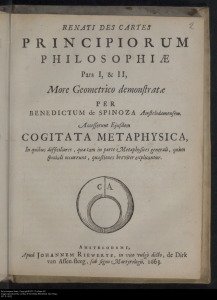
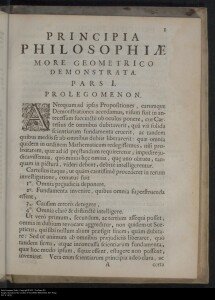
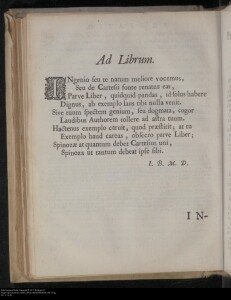
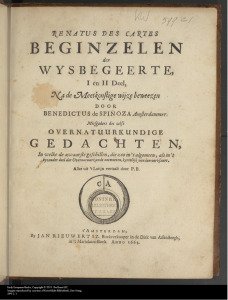
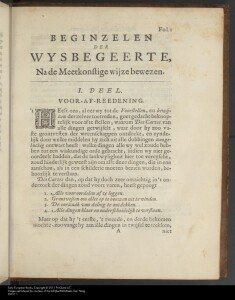
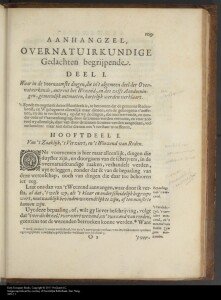
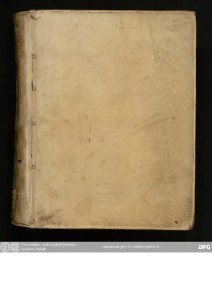
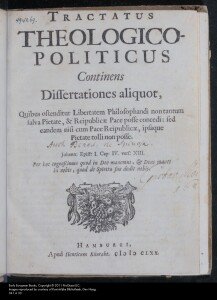

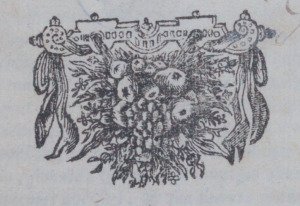
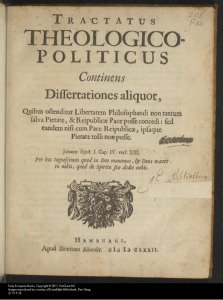
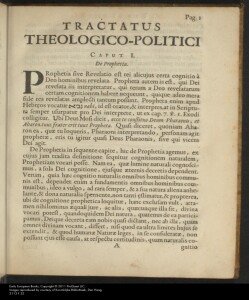
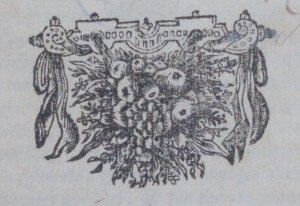
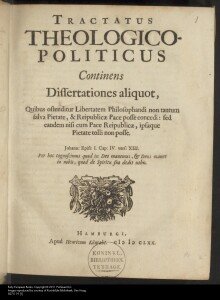
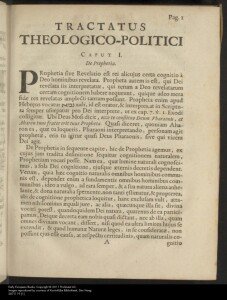
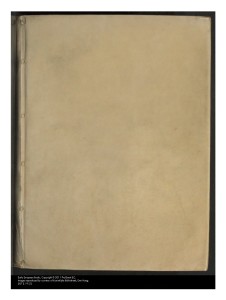
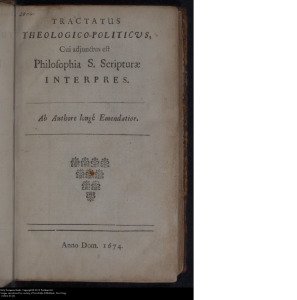

-largethumb.jpg)
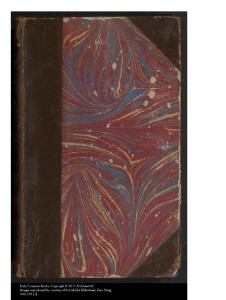
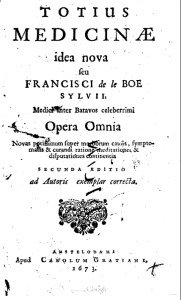
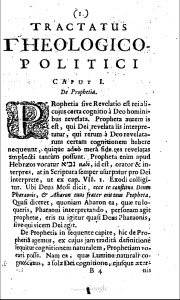
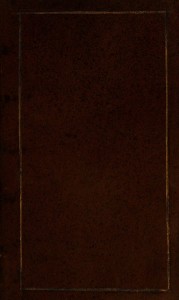
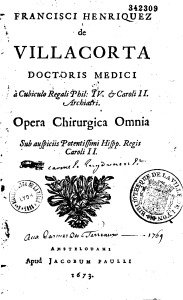
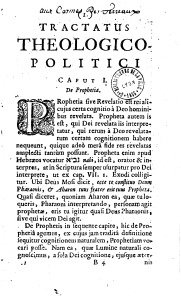
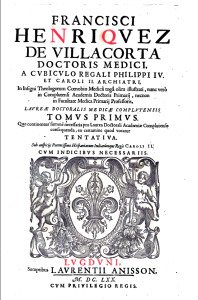
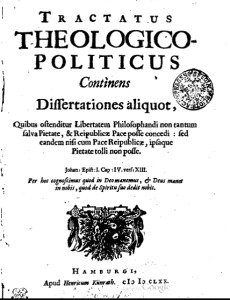
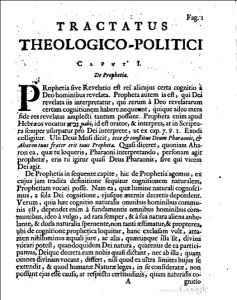
, 1 N 11-largethumb.jpg)
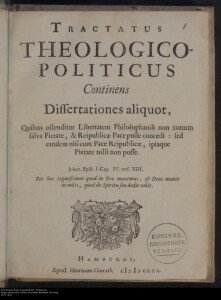
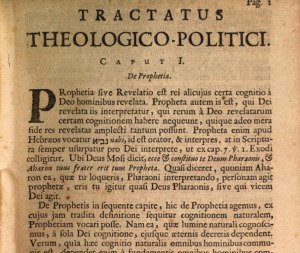
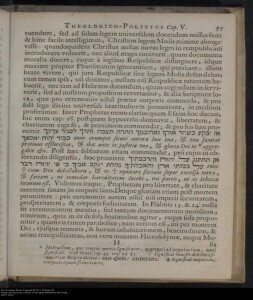
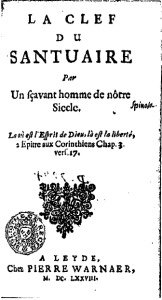

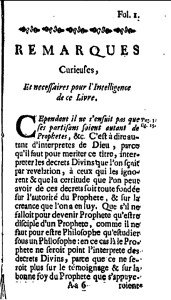



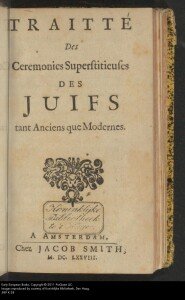
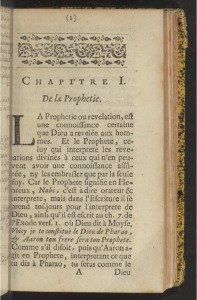
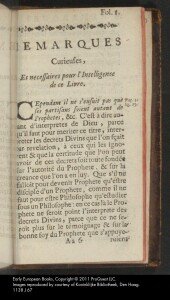
-largethumb.jpg)
